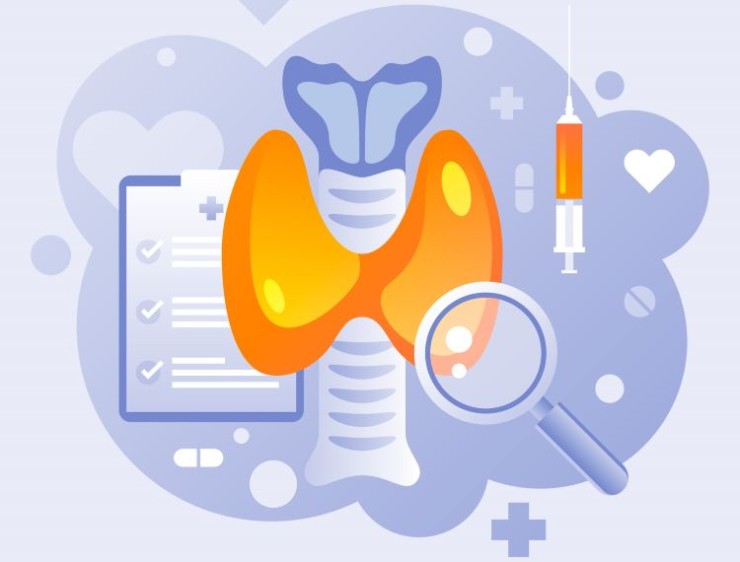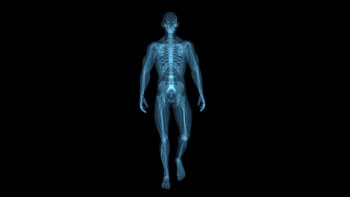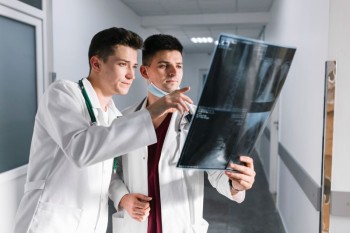
The Thyroid Scan is a nuclear medicine imaging technique designed to evaluate the thyroid gland's structure, function, and overall health.
Thyroid Scan in India with Cost
Thyroid Scan in Detail:
Illuminating Thyroid Function with Nuclear Precision
In the realm of diagnostic imaging, the Thyroid Scan stands as a crucial tool for assessing the structure and function of the thyroid gland. This comprehensive guide aims to elucidate the significance, procedure, and applications of the Thyroid Scan, offering a detailed understanding of its role in modern healthcare.
Introduction
The Thyroid Scan is a nuclear medicine imaging technique designed to evaluate the thyroid gland's structure, function, and overall health. It employs the use of a radiopharmaceutical to provide insights into thyroid activity and detect any abnormalities within the gland.
Understanding Thyroid Scan
Radiotracer Administration:
The procedure involves the administration of a radiopharmaceutical, commonly technetium-99m pertechnetate or iodine-123, either orally or intravenously. This radiotracer is specifically taken up by the thyroid gland.
Gamma Camera Imaging:
A gamma camera is used to capture images of the radiotracer's distribution in the thyroid gland. This enables the visualization of thyroid function and the identification of any irregularities.
Importance in Thyroid
Imaging
The Thyroid Scan holds paramount importance in various aspects of thyroid health:
Thyroid Functionality Assessment: Essential for
evaluating the thyroid gland's ability to take up and concentrate iodine.
Detection of Nodules and Abnormalities: Aids in
identifying thyroid nodules, inflammation, or other abnormalities within the
gland.
Diagnosis of Thyroid Disorders: Helps diagnose
conditions such as hyperthyroidism, hypothyroidism, or thyroiditis.
Preparation for Thyroid
Scan
Preparation for a Thyroid Scan typically involves:
Dietary Restrictions: Temporary
restrictions on iodine-containing foods and medications to enhance tracer
uptake.
Medication Adjustments: Temporary
cessation or adjustment of certain thyroid medications before the scan.
Procedure: Mapping
Thyroid Function
Radiotracer Administration: The patient receives
the radiotracer, either orally or intravenously, allowing it to be taken up by
the thyroid gland.
Uptake Period: The patient waits for a specific
duration to allow the thyroid to concentrate the radiotracer.
Gamma Camera Imaging: The gamma
camera captures images of the thyroid, showcasing the distribution of the
radiotracer and providing insights into thyroid function.
Assessment Areas in
Thyroid Scan
The Thyroid Scan is employed to assess various aspects of thyroid health, including:
Iodine Uptake: Evaluating the thyroid gland's
ability to take up and concentrate iodine.
Nodule Detection: Identifying thyroid nodules
or abnormalities within the gland.
Thyroid Function: Providing insights into
overall thyroid function, crucial for diagnosing thyroid disorders.
Benefits of Thyroid Scan
Functional Imaging: Offers functional insights into thyroid activity
beyond what traditional imaging methods provide.
Early Detection: Facilitates early detection of
thyroid nodules, inflammation, or functional abnormalities.
Diagnosis of Disorders: Assists in the
diagnosis of various thyroid disorders, including hyperthyroidism,
hypothyroidism, or thyroiditis.
Risks and Considerations
The Thyroid Scan involves exposure to low levels of radiation. However, the benefits of accurate thyroid assessment generally outweigh the associated risks.
Clinical Applications
Thyroid Scans find applications in various clinical scenarios, including:
Thyroid Disorder Diagnosis: Crucial for
diagnosing and monitoring thyroid disorders.
Pre-surgical Assessment: Aids in
assessing thyroid nodules before surgical intervention.
Expert Perspectives
Endocrinologists and nuclear medicine specialists collaborate to interpret Thyroid Scan results, providing comprehensive insights into thyroid health.
Technological Advancements
Continual advancements in imaging technology contribute to the refinement of Thyroid Scans, enhancing image resolution and diagnostic capabilities.
Patient Experience
While Thyroid Scans involve exposure to radiation, they are generally well-tolerated by patients. The procedure provides valuable information to healthcare providers without invasive measures.
Conclusion
In conclusion, the Thyroid Scan stands as a pivotal imaging modality, offering functional insights into the thyroid gland's structure and activity. Its applications in assessing iodine uptake, detecting nodules, and diagnosing various thyroid disorders contribute to advanced and personalized healthcare for individuals with thyroid concerns.
Frequently Asked Questions (FAQs) about Thyroid Scans
1. What is the purpose of a Thyroid Scan?
A Thyroid Scan is performed to assess the structure and function of the thyroid gland. It helps in evaluating iodine uptake, detecting nodules, and diagnosing various thyroid disorders.
2. How is the radiotracer administered during a Thyroid Scan?
The radiotracer, commonly technetium-99m pertechnetate or iodine-123, is administered either orally or intravenously, allowing it to be taken up by the thyroid gland.
3. Are there any dietary restrictions before a Thyroid Scan?
Yes, patients may be required to temporarily restrict iodine-containing foods and medications before the scan to enhance the uptake of the radiotracer by the thyroid.
4. What is the significance of evaluating iodine uptake in the thyroid?
Assessing iodine uptake is crucial as it provides insights into the thyroid gland's ability to take up and concentrate iodine, aiding in the diagnosis of various thyroid disorders.
5. Can a Thyroid Scan detect thyroid nodules or abnormalities?
Yes, one of the key benefits of a Thyroid Scan is its ability to identify thyroid nodules, inflammation, or other abnormalities within the gland.
6. How long does a typical Thyroid Scan procedure take?
The procedure involves two main steps: radiotracer administration and gamma camera imaging. The overall duration may vary, but patients typically wait for a specific period after receiving the radiotracer.
7. Does a Thyroid Scan involve exposure to radiation?
Yes, the Thyroid Scan does involve exposure to low levels of radiation. However, the benefits of accurate thyroid assessment generally outweigh the associated risks.
8. Can a Thyroid Scan be used for pre-surgical assessment?
Yes, Thyroid Scans are often used for assessing thyroid nodules before surgical interventions, providing valuable information for healthcare providers.
9. How often are Thyroid Scans recommended for monitoring thyroid health?
The frequency of Thyroid Scans depends on the specific medical condition and the treatment plan outlined by healthcare providers. It is generally not performed routinely but as needed for diagnostic purposes.
10. Are Thyroid Scans well-tolerated by patients?
Yes, Thyroid Scans are generally well-tolerated by patients. While they involve exposure to radiation, the procedure is non-invasive and provides valuable diagnostic information without significant discomfort.
(0)
Login to continue



